How a dedicated West Coast team unearthed the oldest archeological sites in Canada.

IT’S APRIL 2016 and the tide is out at a sheltered bay on remote and ruggedly beautiful Calvert Island, on British Columbia’s central coast, where the only year-round residents are wolves. A sprawling dig is centred on a shallow two-metre by four-metre pit precisely carved into the beach. Black hoses snake along the mudflat from a distant pump, bringing sea water to tripods holding wooden-framed metal screens. Rubber-booted archeologists and their assistants haul pails of material excavated from the pit to fill the frames. Others wash, pick through and inspect the diggings for items of interest, which go into labelled plastic bags. Someone warns me not to leave my brown-bag lunch uncovered. High on a branch, a huge raven eyes us, ready to swoop down. There’s excitement when a screener finds a stone flake from ancient tool-making. But the most poignant evidence of very early human activity here is a series of remarkable footprints.
“Footprints have raised ridges,” says Duncan McLaren, an assistant professor in the University of Victoria’s department of anthropology, as he crouches in the pit, scraping with his trowel. “Here, you see what we think is the back — the heel — of a footprint, and here is another entire footprint, with toes.” When someone steps into soft sand or mud and then pulls their foot out, it raises the area around the edges and leaves a slight depression. “This black sediment is set into it,” he adds, pointing to where dark sand later filled in the depressed area. The contrast makes the prints readily visible. “You can almost feel the edge of the footprint with the trowel, and the clay has a slightly anaerobic scent from lack of oxygen. Like rotten eggs.”
هذه القصة مأخوذة من طبعة September-October 2019 من Canadian Geographic.
ابدأ النسخة التجريبية المجانية من Magzter GOLD لمدة 7 أيام للوصول إلى آلاف القصص المتميزة المنسقة وأكثر من 9,000 مجلة وصحيفة.
بالفعل مشترك ? تسجيل الدخول
هذه القصة مأخوذة من طبعة September-October 2019 من Canadian Geographic.
ابدأ النسخة التجريبية المجانية من Magzter GOLD لمدة 7 أيام للوصول إلى آلاف القصص المتميزة المنسقة وأكثر من 9,000 مجلة وصحيفة.
بالفعل مشترك? تسجيل الدخول
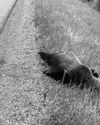
ANIMAL XING
THIS PAST SUMMER AN AMBITIOUS WILDLIFE UNDER/OVERPASS SYSTEM BROKE GROUND IN B.C. ON A DEADLY STRETCH OF HIGHWAY JUST WEST OF THE ALBERTA BORDER. HERE’S HOW IT HAPPENED.
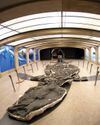
Unearthing a giant
Almost 30 years ago, paleontologist Elizabeth “Betsy” Nicholls made a discovery of colossal proportions
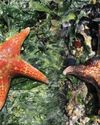
WE DID THIS
AS THE IMPACTS OF GLOBAL WARMING BECOME INCREASINGLY EVIDENT, THE CONNECTIONS TO BIODIVERSITY LOSS ARE HARD TO IGNORE. CAN THIS FALL’S TWO KEY INTERNATIONAL CONFERENCES POINT US TO A NATURE-POSITIVE FUTURE?
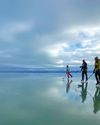
The COOLEST COUNTRY
“The coolest country” celebrates the wonders of winter with an all-Canadian theme. The 20-page travel planner includes a bucket list from travel writer Robin Esrock, steamy spa ideas, ice fishing destinations, festival fun, northern itineraries and more!

KEEPER of the SEA
FROM BEING LABELLED DEVIL’S APRON BY FRUSTRATED FISHERMEN TO BEING LAUDED AS A SUSTAINABLE FOOD SOLUTION: HOW KELP’S POTENTIAL IS BEING REALIZED, JUST AS SCIENTISTS LEARN IT’S DECLINING

WILD THINGS
WILD CANADIAN GEOGRAPHIC PRESENTS THE WINNERS OF ITS ANNUAL CANADIAN WILDLIFE PHOTOGRAPHY OF THE YEAR COMPETITION

AN EMPTY LANDSCAPE
AFTER MORE THAN A MILLION YEARS ON EARTH, CARIBOU ARE UNDER THREAT OF GLOBAL EXTINCTION. THE PRECIPITOUS DECLINE OF THE ONCE MIGHTY HERDS IS A TRAGEDY THAT IS HARD TO WATCH — AND EVEN HARDER TO REVERSE.
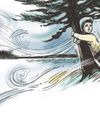
NORTHERN EXPOSURE
BON INTO A CARIBOU-HUNTING CREE FAMILY IN NORTHERN MANITOBA, ACCLAIMED PLAYWRIGHT AND NOVELIST. TOMSON HIGHWAYS PAYS TRIBUTE TO THE MAGICAL WORLD OF HIS CHILDHOOD IN PERMANENT ASTONISHMENT

INTO THE ARCTIC
CANADIAN PAINTER AND FILMMAKER CORY TRÉPANIER EXPLORES THE SUBLIME AND RAPIDLY CHANGING CANADIAN ARCTIC
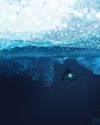
Under the ice
Until the last decade, we knew little about what lay beneath the Arctic ice. Now scientists and explorers are shedding light on this vanishing world.